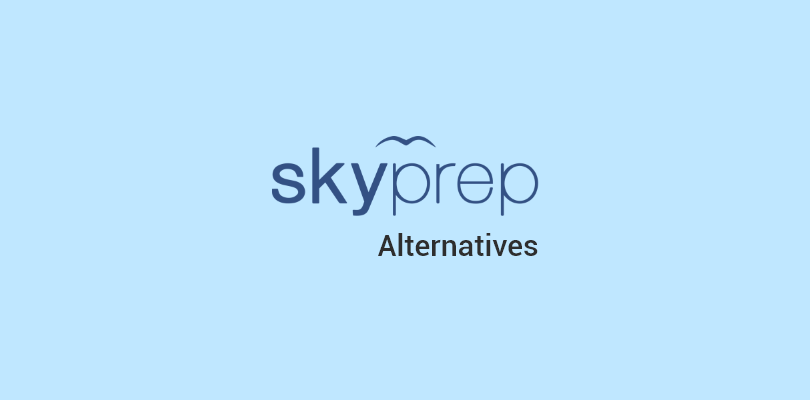Did you know it takes real estate agents 7.5 hours of cold calling to land one qualified appointment or referral?
Yes, you read it right!
What if I tell you this number can be significantly reduced with proper education and training? That’s pretty agreeable.
But the problem is who to trust?
As a passionate online training professional, I understand how challenging it can be to choose the best real estate LMS from hundreds of similar-looking tools on the market.
To alleviate this challenge, I’ve curated a list of the best real estate LMS tools for maximizing employee training and turning them into top-notch industry professionals.
| Best Real Estate LMS | Best For | Pricing |
|---|---|---|
| ProProfs Training Maker | Custom Course Creation | Forever free for up to 10 learners. Paid plan starts at $1.99/learner/month for large teams. Billed annually. |
| Thrive | Course Creation and Customization | Starts at $30,000. |
| Absorb LMS | AI-Powered Capabilities | Starts at $14,500/year |
| Docebo | Large Enterprises | Starts at $25,000/year |
| TalentLMS | Gamification | Starts at $69/month |
| iSpring Learn | Presentations | Starts at $2.29/user/month |
| 360 Learning | Knowledge Sharing | Starts from $8/user/month |
| SAP Litmos | Employee Training | $3/user/month for 150 to 500 active users |
| Acorn | Performance Management | Starts at $5,000/year |
| Tovuti LMS | Customization | Starts at $11,160/50 users/year |
| Northpass | Employee Onboarding | Custom pricing |
| 360training | Compliance Training | Custom pricing |
List of the Top LMS for Real Estate
You might wonder, what makes my research credible?
Well, I have had first-hand experience with most of the tools I recommend. I have also considered the recommendations from my industry peers, client testimonials, and reviews in software comparison sites.
As for myself, I am presently using ProProfs Training Maker, and that’s the reason for putting it at the top.
1. ProProfs Training Maker – Best Real Estate LMS for Employee Training

ProProfs Training Maker is a robust and user-friendly learning management system for the real estate industry that I’ve had the pleasure of using extensively. It excels in creating engaging and customized online courses with its intuitive course-authoring tools for employee training. The tool offers a vast library of pre-built courses, making course creation a super easy task.
You can use the platform to train your agents and brokers on how to help people buy, sell, or rent private and commercial real estate in a competitive marketplace.
The platform’s reporting and analytics capabilities offer deep insights into learner progress, allowing for data-driven decision-making. ProProfs Training Maker also boasts interactive features like quizzes, surveys, gamification, learning pathways, and discussion forums, enhancing learner engagement.
With responsive design, it ensures a seamless learning experience on any device. Its integration options, including SCORM and Tin Can API, make it versatile for various industries. From tracking employee training to delivering customer education, ProProfs Training Maker is a versatile and effective tool.
What you’ll like:
- Learning paths to create well-defined learning roadmaps based on agents’ skill levels.
- Interactive quizzes for assessing understanding, retention, and gaps.
- eLearning authoring tools to create courses from scratch or import existing material.
- Single Sign-On to authenticate learners who are already logged into your website.
- The ability to incorporate PDFs, PowerPoint presentations, videos, and images into your courses.
What you won’t like:
- The free plan is limited to just 10 users.
- An option for light and dark mode would be great for an enhanced UX
Pricing:
Forever FREE plan for small teams (up to 10 learners). Paid plan starts at $1.99/learner/month for large teams with a 15-day money-back guarantee. No hidden charges.
Easily Comply With Connecticut Laws
Deliver mandatory harassment training effortlessly.
2. Thrive – Best for Course Creation and Customization
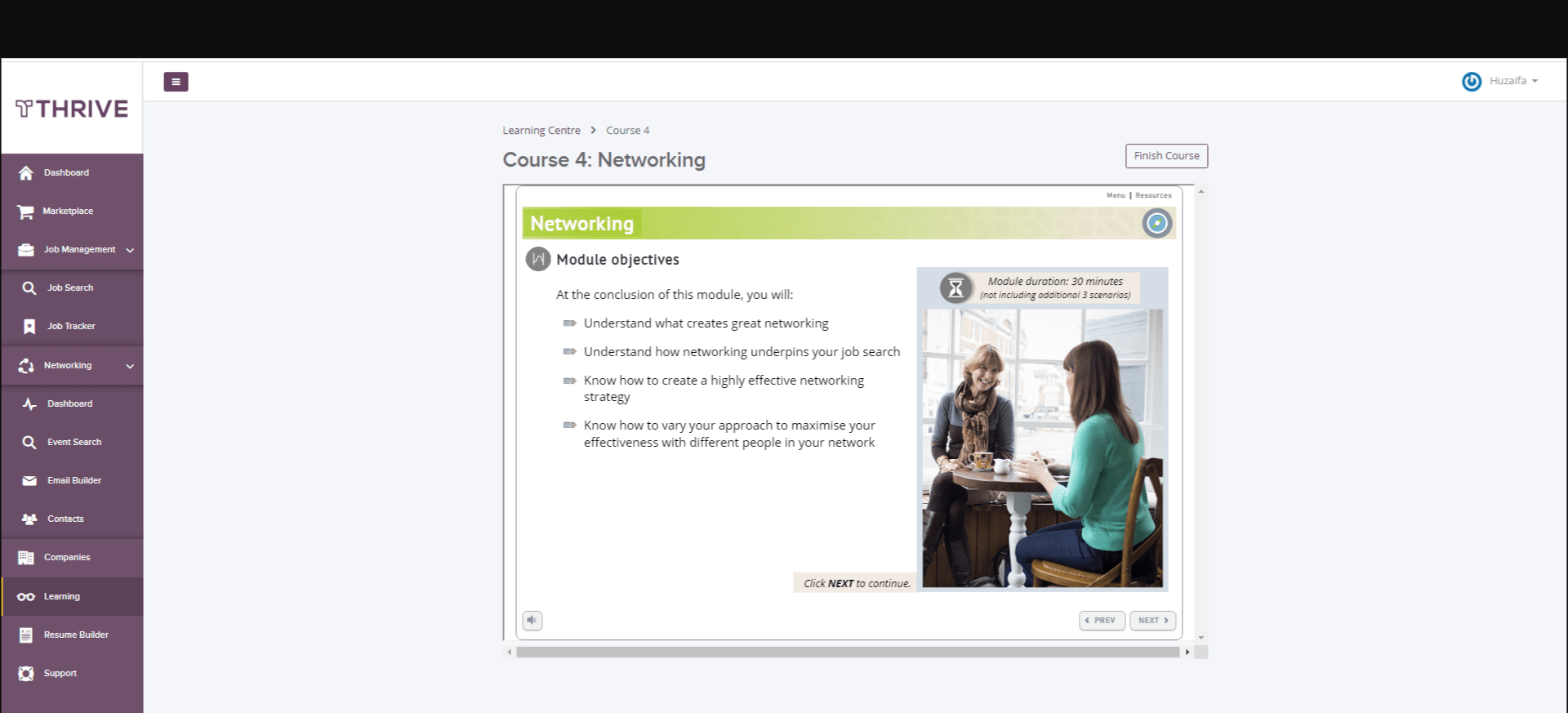
Thrive is a robust Learning Management System (LMS) that I’ve had the pleasure of using extensively in my professional career. The platform offers a user-friendly interface that makes it easy for both administrators and learners to navigate.
What sets it apart is its robust course creation and customization features. The tool offers a wide range of content formats, from videos to quizzes and interactive simulations.
Thrive offers advanced analytics that helped me immensely by providing deep insights into learner progress and engagement, allowing our instructors to fine-tune their content and teaching methods. The platform also boasts excellent communication tools, fostering collaboration among learners through forums, live chats, and virtual classrooms.
It’s a reliable choice for any organization serious about enhancing its training and development programs.
What you’ll like:
- A single platform for learning, collaboration, communication, and skills development.
- Tailored content suggestions based on skills, behaviors, and interests.
- A sleek mobile app for convenient on-the-go learning.
- Tools for scheduling and automating learning campaigns and live broadcasts.
- Robust tracking and analytics for compliance requirements.
What you won’t like:
- Higher pricing as compared to other LMS platforms.
- Users have reported longer response times from Thrivlearning’s customer support..
Pricing:
Starts at $30,000.
Watch: How to Choose the Best LMS Software for Employee Training
3. Absorb LMS – Best for AI-Powered Capabilities
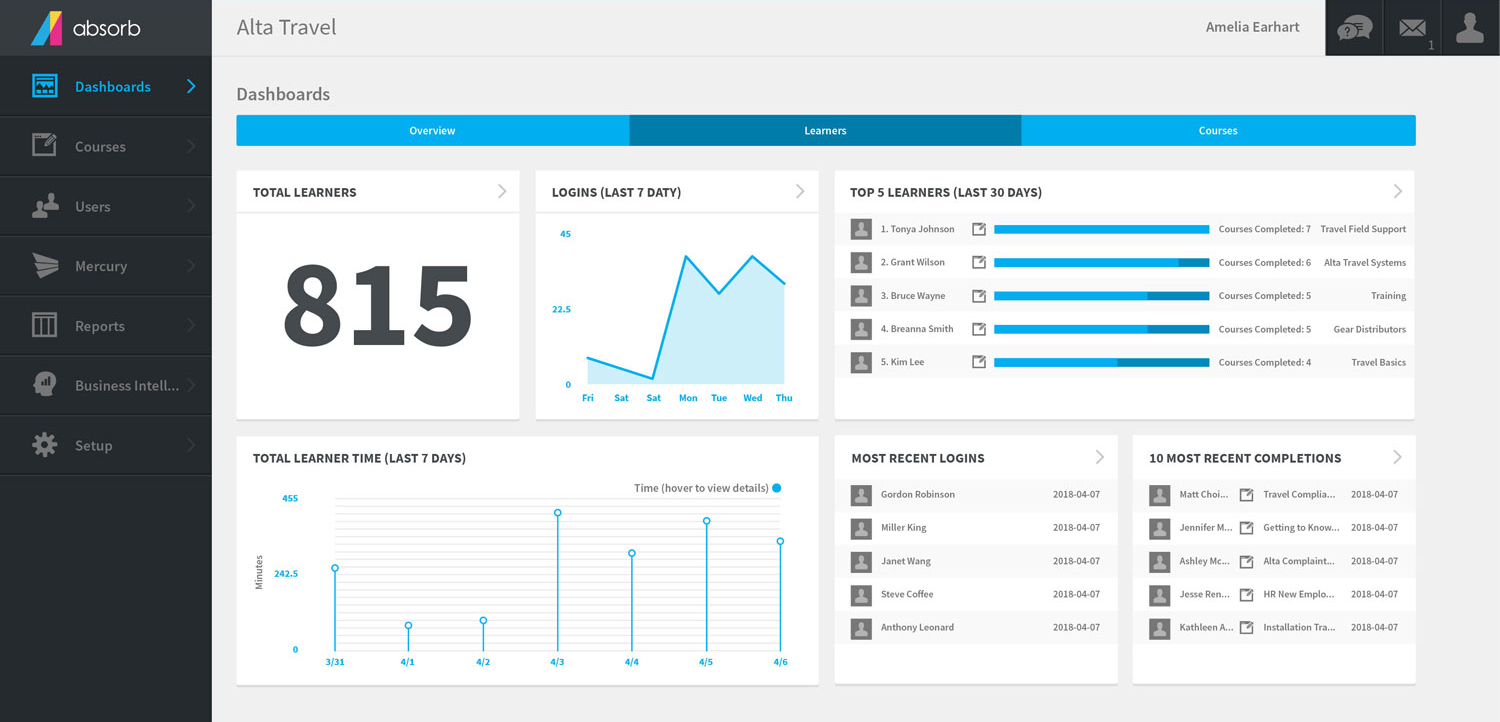
This AI-powered LMS amazed me when I first tried my hands at it. The tasks that were earlier taking me a reasonable amount of time were now automated thanks to its predictive AI and natural language recognition. The Trending Ribbon feature even recommended popular courses to my learners.
When it comes to accessibility, Absorb LMS’s mobile app ensures learners can access content on the go. This real estate LMS helped me track my students’ performances and those of my courses. The tool also offered social learning capabilities, facilitating collaboration among learners.
If you are looking for a tool to streamline your training and development, this tool can surely come in handy.
What you’ll like:
- Customizable dashboards to meet unique reporting needs.
- Mobile-responsive design for learning on various devices.
- Automated notifications and reminders to keep learners engaged.
- Content library with pre-built courses for quick deployment.
- Multi-language support for global training initiatives.
.What you won’t like:
- Higher pricing compared to some other LMS options.
- Limited integration options with certain third-party software.
Pricing:
Starts at $14,500/year.
4. Docebo – Best for Large Enterprises
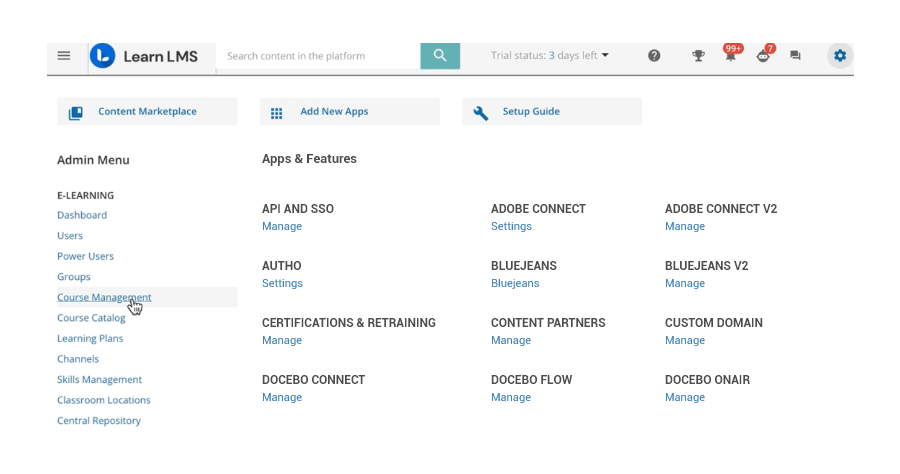
Docebo is an LMS that I’ve found particularly suited for organizations with a global reach. Its multilingual capabilities and built-in translation tools simplify training delivery to diverse audiences.
The platform offers various social learning features, fostering collaboration and knowledge sharing among learners. Its AI-powered predictive learning engine suggests content personalized to each learner, enhancing engagement.
Docebo’s reporting and analytics tools provide detailed insights into learner behavior and course effectiveness. The sleek and user-friendly interface contributes to a positive user experience.
Additionally, Docebo offers robust integrations, making it easy to connect with other business tools. Its scalability and focus on learner engagement make it a valuable asset for organizations looking to elevate their training programs.
What you’ll like:
- Social learning features for fostering collaboration and knowledge sharing.
- Compliance and certification management for regulatory training.
- AI-powered chatbots for instant learner support.
- Multi-tenancy support for managing multiple clients or branches.
- Gamification elements to motivate and reward learners.
What you won’t like:
- Limited offline access for mobile learning.
- Limited customization and branding options.
Pricing:
Starts at $25,000/year.
5. TalentLMS – Best for Gamification
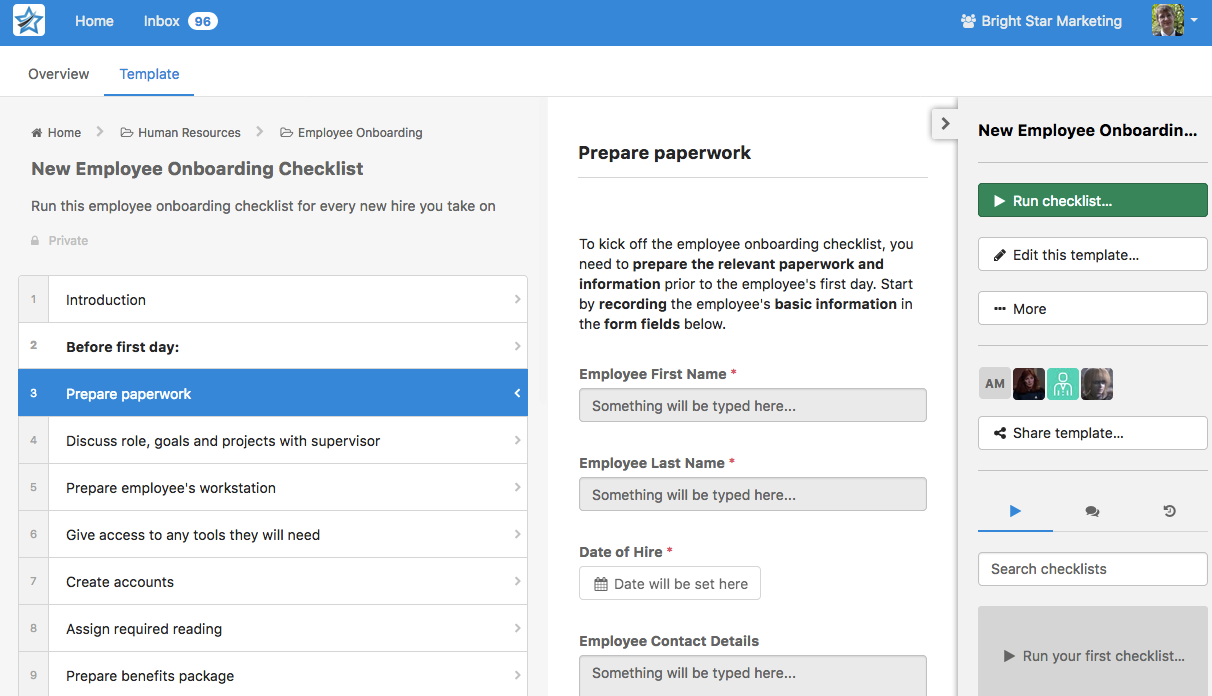
TalentLMS is a versatile and straightforward LMS that I’ve found exceptionally user-friendly. It’s an excellent choice for organizations seeking a quick and easy way to deliver online training. The platform offers a streamlined course creation process with drag-and-drop functionality, making it accessible for users with varying technical abilities.
It’s suitable for both small businesses and large enterprises, with the ability to accommodate growing training needs seamlessly. The mobile app ensures learners can access content anytime, anywhere.
What’s the best part? I could add points, badges, and leaderboards to my training programs, which gamified the whole learning experience.
What you’ll like:
- Automated course enrollment and assignment based on roles.
- Custom domain mapping for a branded learning experience.
- Built-in e-commerce functionality for selling courses online.
- Interactive video conferencing for virtual instructor-led training.
- Powerful quiz and assessment engine for evaluating learner knowledge.
What you won’t like:
- Limited support for complex compliance and certification tracking.
- Reporting and analytics capabilities could be more advanced.
Pricing:
Starts from $69/month (billed annually).
6. iSpring Learn – Best for Presentations
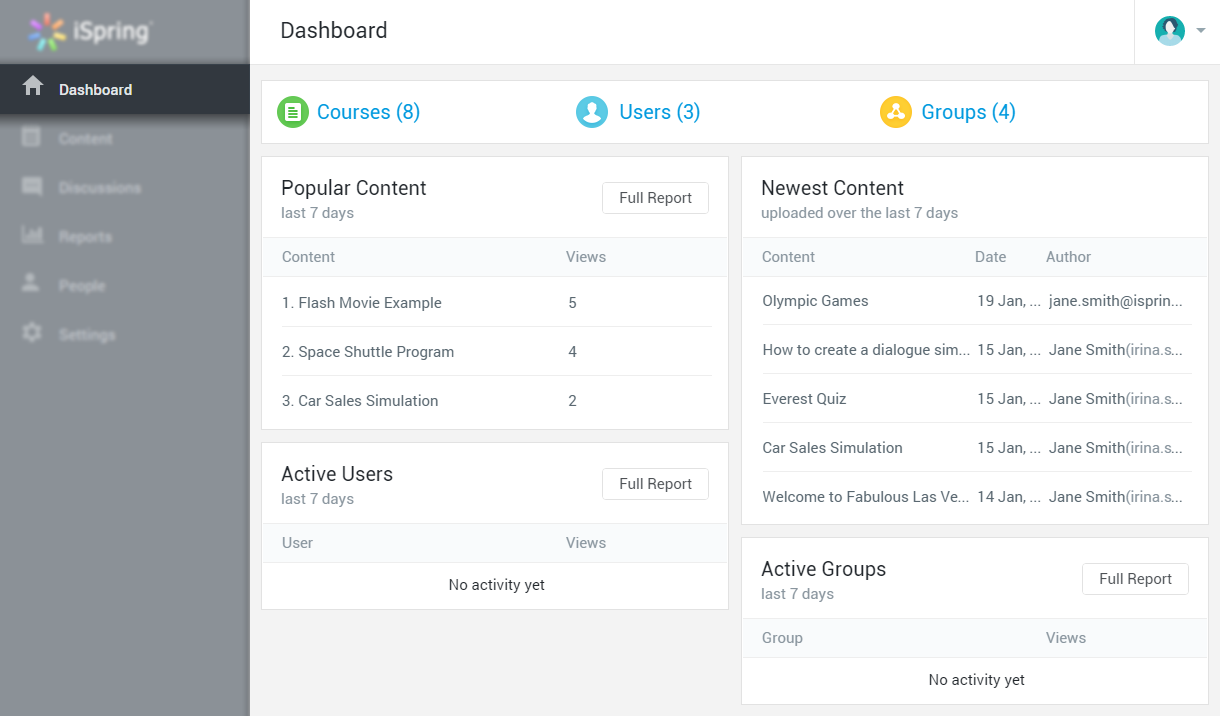
iSpring Learn is a user-friendly LMS that strongly emphasizes delivering engaging eLearning experiences. What impressed me most was its integration with PowerPoint, allowing for the easy conversion of presentations into interactive courses.
The platform offers a range of assessment tools, including quizzes and surveys, enhancing the learning experience. The tool helped me automate those repetitive manual tasks like re-enrolling employees’ attestations and training.
iSpring Learn’s mobile app ensures learners can access content on various devices, promoting flexibility. Its SCORM compliance facilitates seamless integration with other eLearning content.
For organizations seeking a hassle-free way to create and deliver online courses, iSpring Learn’s simplicity and PowerPoint integration make it a compelling choice.
What you’ll like:
- Content versioning and rollback to manage course revisions.
- White-labeling options for a fully branded learning portal.
- Integration with popular webinar platforms for live training.
- Rich multimedia support, including videos, simulations, and quizzes.
- Automated email notifications and drip campaigns.
What you won’t like:
- Lack of built-in social learning features.
- Some users find the user interface less modern and visually appealing.
Pricing:
Starts at $2.29/user/month.
7. 360 Learning – Best for Knowledge Sharing
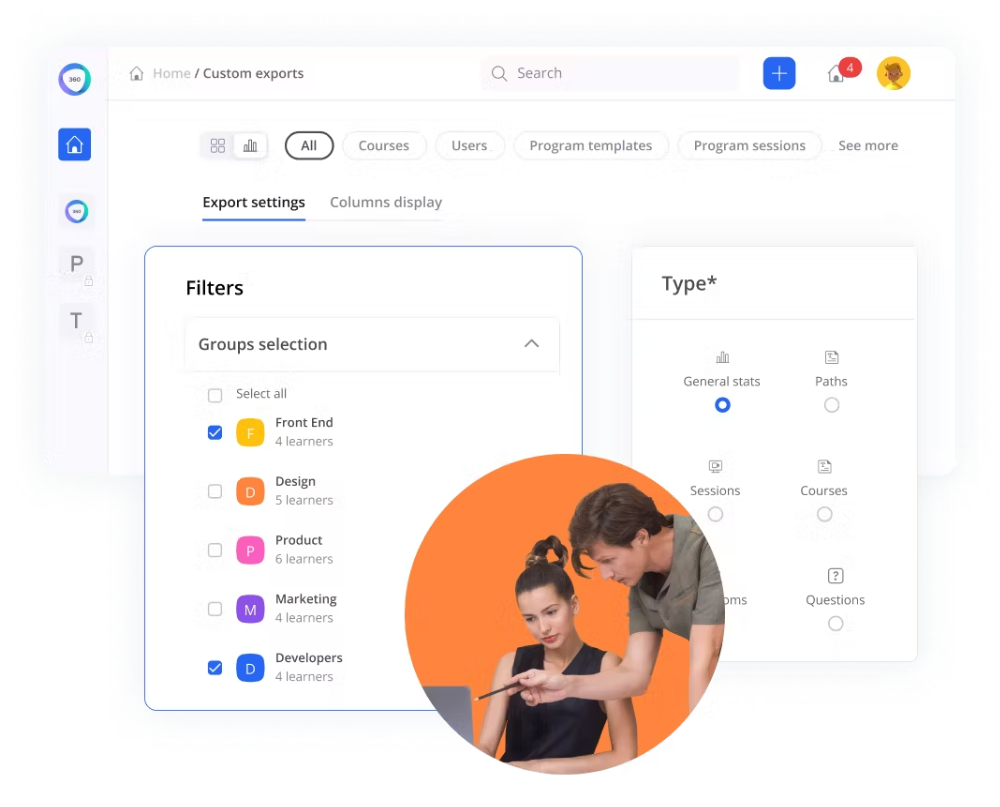
360 Learning is an innovative LMS that focuses on collaborative learning and knowledge sharing. My experience with it has shown that it excels in creating a social learning environment where learners can interact, share insights, and collaborate on projects.
The platform offers robust content creation tools, making it easy to build engaging courses. Its AI-driven recommendations help personalize the learning journey. 360 Learning’s interface is clean and intuitive, contributing to an excellent user experience.
For organizations looking to foster a culture of collaborative learning and knowledge sharing, 360 Learning is a compelling choice.
What you’ll like:
- Peer-to-peer learning features for collaborative skill development.
- Learning paths and skill tracking for career development.
- Customizable workflows for course creation and approval.
- Built-in content authoring and assessment tools.
- Personalized learning recommendations based on user behavior.
What you won’t like:
- Pricing can be on the higher side for smaller organizations.
- Limited built-in e-commerce functionality for selling courses.
Pricing:
Starts from $8/user/month.
8. SAP Litmos – Best for Employee Training
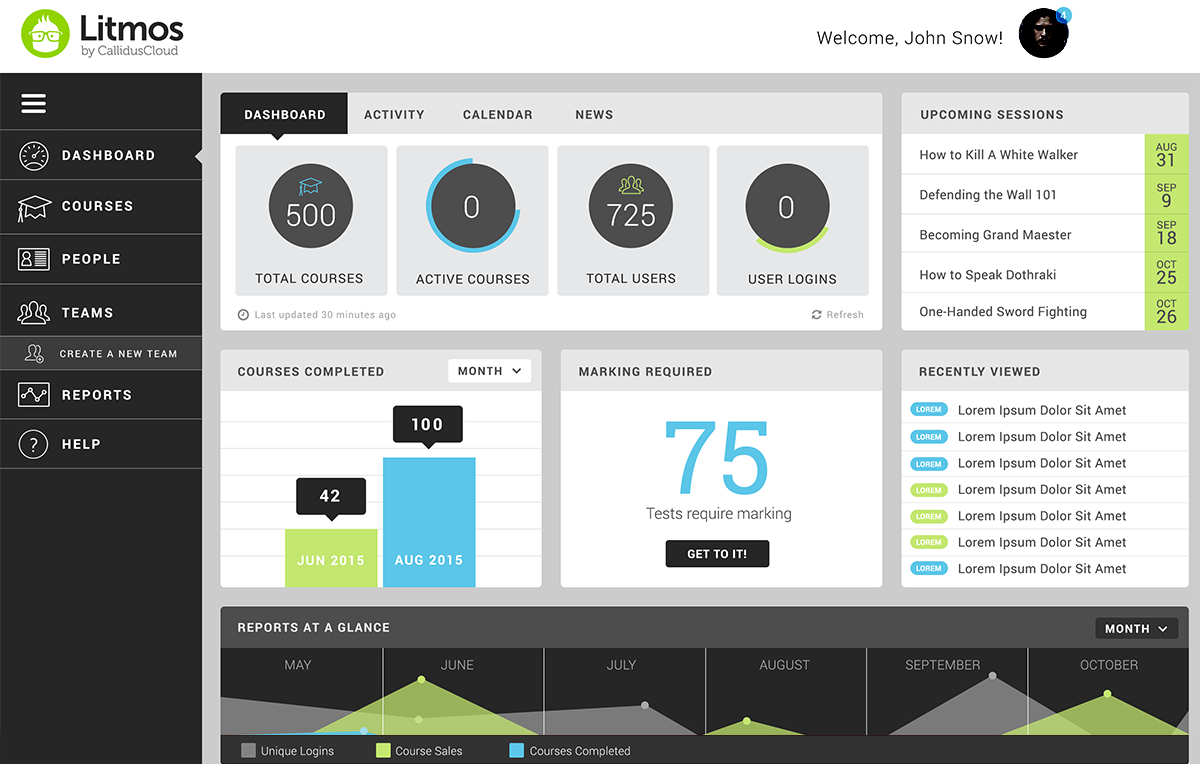
SAP Litmos is known for its ease of use and scalability. As per my experience with this tool, it’s particularly well-suited for employee training and compliance in various industries.
This tool offers a user-friendly, cloud-based, and mobile-responsive learning management system that’s both scalable and highly secure. Its quick deployment and integration options ensure a seamless transition into your existing workflow.
With Litmos, you can effortlessly create, manage, and distribute training content, supporting web-based and instructor-led sessions across the globe. The platform incorporates features like video assessments, gamification, and customizable branding to keep learners motivated and invested in their development.
For organizations seeking a reliable and scalable LMS for employee training, SAP Litmos is a solid choice.
What you’ll like:
- Scalable training for businesses of all sizes, from startups to enterprises.
- Multi-modal content delivery, including video, documents, and quizzes.
- Mobile app with offline access for on-the-go learning.
- Extensive content marketplace for a wide range of topics.
- Integration with CRM and HR systems for data synchronization.
What you won’t like:
- Slow loading times, glitches, and errors.
- No feature to make courses optional for learners.
Pricing:
$3/user/month for 150 to 500 active users.
9. Acorn LMS: Best for Performance Management
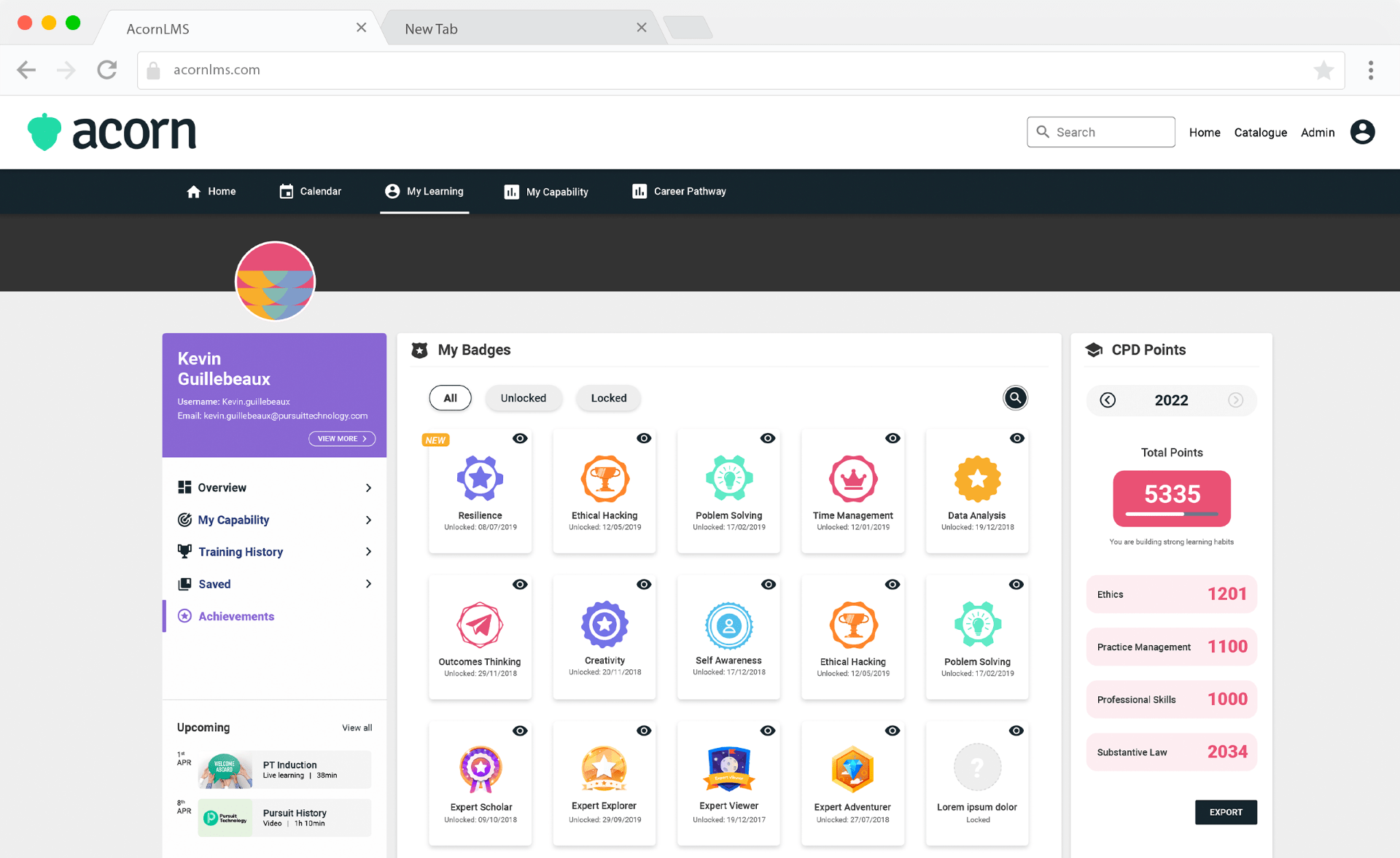
Acorn is another LMS that has been a staple in my eLearning toolkit. Its simplicity and efficiency make it an ideal choice for organizations seeking a straightforward yet effective learning management solution.
Acorn shines in its ease of use. Navigating the platform is intuitive, and both instructors and learners can quickly adapt to its user-friendly interface. The course creation process is streamlined, allowing for the easy upload of content and multimedia elements.
The software also boasts strong performance management capabilities. Instructors can easily track progress, set up automated reminders, and assess learner performance through its robust reporting features.
This is particularly beneficial for organizations focused on compliance and certification training.
What you’ll like:
- Tailored course suggestions based on learner’s interests and progress.
- Kudos and recognition for each other’s activities, skills, and goals.
- Content creation tools to share announcements and updates.
- Collaboration with peers and mentors through discussion forums and chat.
- Mobile accessibility to access courses anytime, anywhere.
What you won’t like:
- Small businesses might find Acorn overly complex, as it offers many features they may not need, potentially overwhelming users.
- Lack of customization for courses.
Pricing:
Starts at $5,000/year.
10. Tovuti LMS – Best for Customization
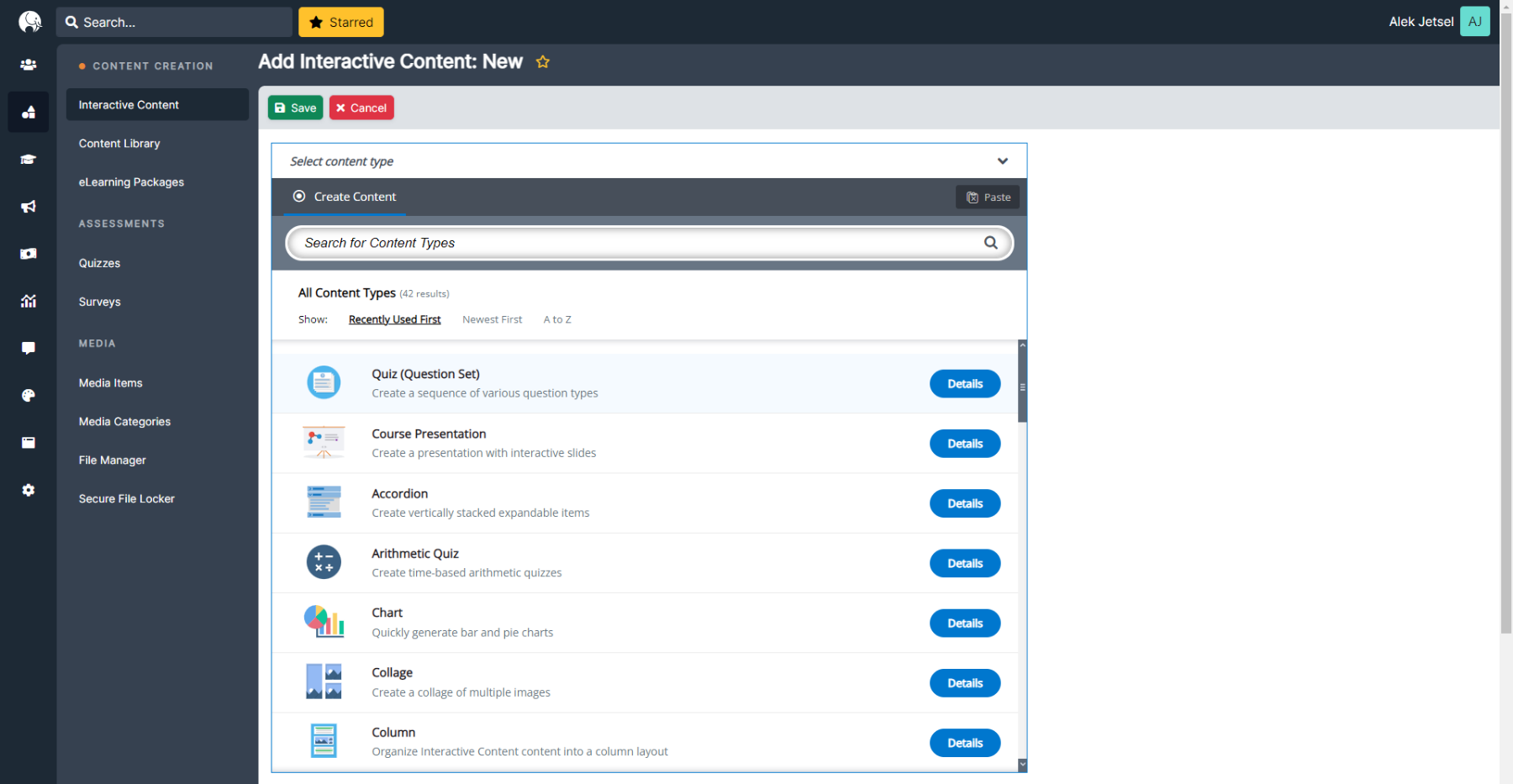
Tovuti LMS is an all-in-one learning platform that I’ve found to be highly customizable. It stands out with its ability to create unique and branded learning experiences.
The platform offers a wide range of course authoring tools, including multimedia and gamification options. Its reporting and analytics capabilities provide insights into learner engagement and course effectiveness.
Tovuti’s versatility suits various industries, from corporate training to continuing education. Its integrations with other business systems and content repositories enhance its functionality.
For organizations seeking a highly customizable and branded learning platform, Tovuti LMS is an excellent choice.
What you’ll like:
- Dynamic, interactive learning paths for personalized training journeys.
- Extensive reporting with real-time insights into learner progress.
- Social learning features for collaboration and knowledge sharing.
- Customizable certificates and badges to reward learner achievements.
- API and Zapier integration for connecting with other tools and systems.
What you won’t like:
- Custom reporting options are less flexible compared to advanced LMS platforms.
- The content management system can be overly complex for basic use.
Pricing:
Starts at $11,160/50 users/year.
11. Northpass – Best for Employee Onboarding
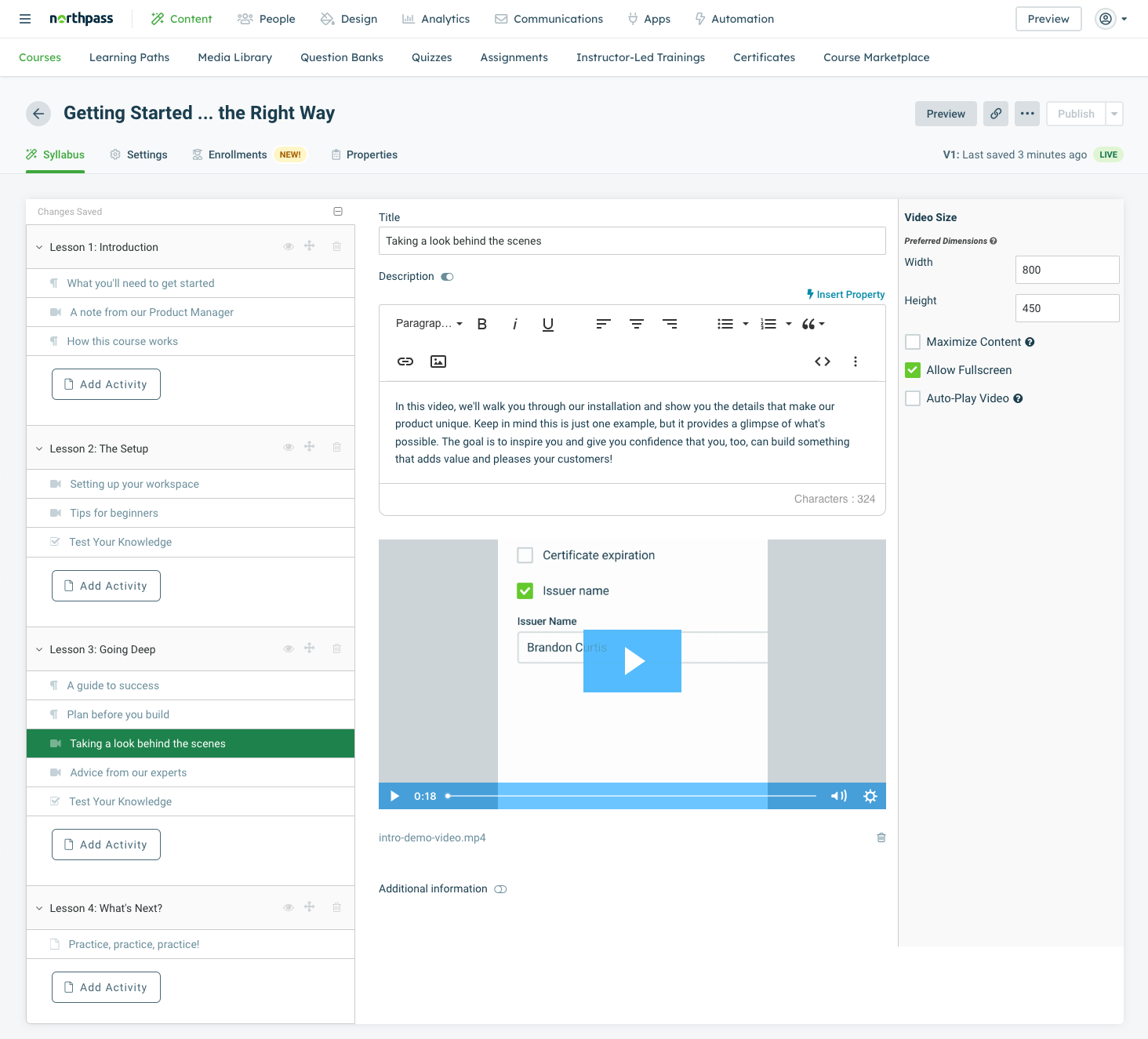
Northpass LMS is highly recommended by professionals in my industry as a top choice for enhancing employee onboarding and facilitating customer education. Their firsthand experiences highlight its exceptional effectiveness for businesses seeking to educate both customers and partners.
By automating one-on-one training it frees your customer success teams to focus on nurturing relationships, driving growth, and improving customer retention. Moreover, it’s incredibly cost-effective, allowing you to reduce training expenses while ensuring that your education program remains easily accessible 24/7.
Northpass’s integrations with CRM and marketing tools make it a valuable asset for customer-focused organizations.
What You’ll Like:
- Advanced assessment and quiz features for accurate skill evaluation.
- Powerful automation tools for course assignments and notifications.
- Adaptive learning paths to cater to individual learner needs.
- Secure, scalable, and compliant with data privacy regulations.
- Integration with popular marketing and analytics platforms.
What you won’t like:
- Organizations with complex assessment needs may find Northpass’s assessment features lacking.
- Lack of integrations can be a limiting factor.
Pricing:
Custom pricing.
12. 360training – Best for Compliance Training
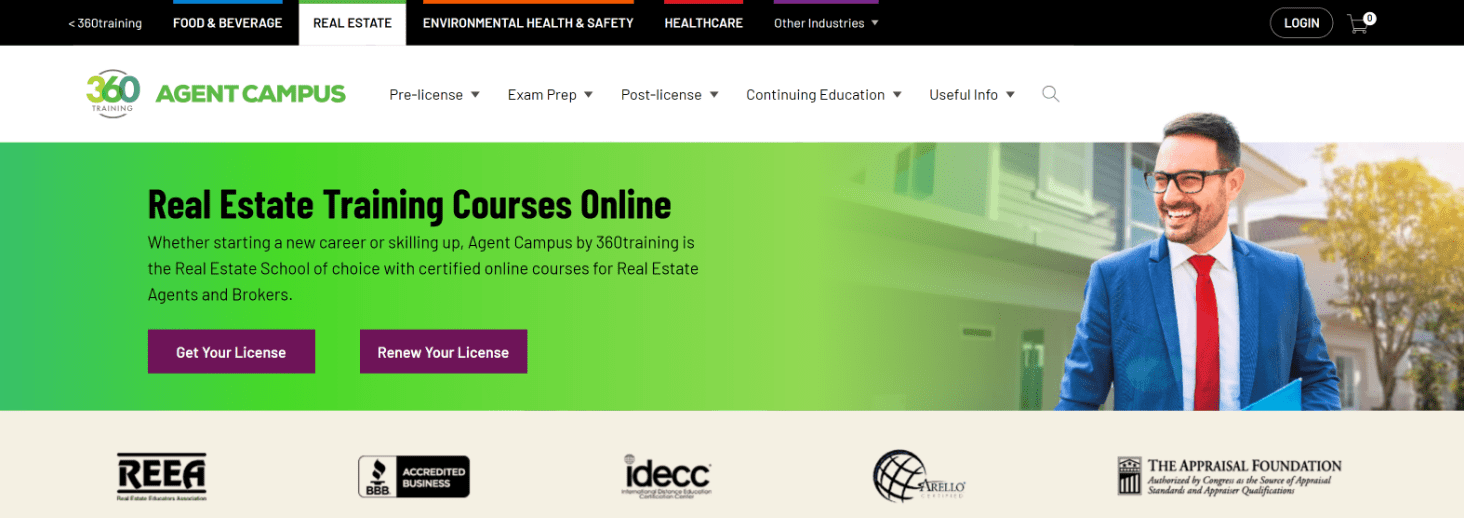
This LMS is a popular name that specializes in compliance training. Using it, you can train your agents on regulations such as fair housing laws, licensing, and foreclosure.
Having personally experienced its benefits, I can confidently attest to its effectiveness in providing top-notch online education for both newbies and seasoned professionals.
360training is best suited for regulated industries where compliance is the most important factor. Its courses are not just certified but also meticulously updated, ensuring you’re always in sync with the latest industry standards.
The platform’s mobile-friendly design ensures learners can access training materials on various devices. For organizations seeking a compliance-focused LMS, 360training is a solid option.
What you’ll like:
- Automated certificate generation upon course completion.
- A comprehensive library of industry-specific training courses.
- Self-paced learning allows users to study at their convenience.
- Interactive multimedia elements for engaging and effective learning.
- Continuous updates to keep content aligned with industry changes.
What you won’t like:
- Users may find 360training’s course catalog limited, especially if they require diverse or specialized content.
- Reporting features are complex and may require a learning curve.
Pricing:
Custom pricing.
Which Is the Best LMS for Real Estate?
Real estate is not just about pitching property. It’s more than that. From the latest market trends and relevant laws to hard and soft skills, you need to empower your agents to stand out from the competition. And what better way than a real estate LMS?
I have curated this list of the 12 best real estate LMS with the utmost care, making sure readers like you get the best out of it. But, as a learner myself, I understand it can still be confusing to choose from such a list. So, here are my top three choices for the best real estate LMS that can help your business:
Option A: ProProfs Training Maker
If you are looking to simplify your training and skill development, ProProfs Training Maker can be your go-to tool. It offers user-friendly course creation, tracking, and assessment tools. The software supports multimedia content, collaborative learning, and robust reporting, facilitating efficient and engaging online learning experiences.
Option B: Absorb LMS
Absorb LMS is a great tool if you want to streamline and enhance your training and e-learning initiatives. With its robust content management, analytics, and reporting tools, this tool can help you analyze participants’ progress. It can also help you deliver engaging and effective training programs, track learner progress, and adapt to evolving educational needs.
Option C: TalentLMS
This cloud-based learning management system makes it easy to deliver engaging and effective learning courses to your employees, partners, or customers. This tool is perfect for creating online courses and sharing them with remote teams. You can help your team stay updated on the latest developments in the real estate sector with its easy-to-build courses.
Though I have cut down the list to three tools, if asked personally, I would always recommend ProProfs Training Maker as it has simplified the way I was creating courses and training employees. The best part? I don’t need to create courses from scratch and can get started with the training right away.
Additionally, its multilingual capabilities have allowed me to cater to a diverse workforce.
You can try its free plan to see it yourself. It doesn’t charge you a penny for a team of up to 10 members.
Get Free LMS Software — All Features, Forever.
We've helped 567 companies train 200,000+ employees. Create courses in under a minute with our AI LMS or use 200+ ready-made courses on compliance, harassment, DEI, onboarding, and more!
Learn More About Real Estate LMS
What is a real estate LMS?
A real estate LMS is a specialized software platform designed to facilitate the training, development, and management of real estate professionals, including agents, brokers, and support staff. It is a one-stop platform for delivering, tracking, and managing various training and educational materials specific to the real estate industry.
What are the Key features to look for in a real estate LMS?
Look for features like customizable course creation, tracking progress and completion, assessment tools, multimedia support, mobile compatibility, collaboration features, analytics, integration capabilities, and tailored content for real estate topics.
How to choose the right LMS for real estate?
To choose the right real estate LMS, assess your training needs and consider user-friendliness, scalability, available features, content relevance, integration options, customer support, and pricing. Prioritize a system that aligns with your organization’s specific requirements.
How can a real estate LMS help improve the knowledge and skills of my agents and brokers?
A real estate LMS offers convenient access to industry-specific training modules, fostering continuous learning. Agents and brokers can enhance their expertise in property management, contract negotiation, and legal compliance through interactive courses, assessments, and resources.
Does the LMS offer training modules tailored to real estate industry topics?
Yes, a comprehensive real estate LMS typically provides specialized training modules tailored to the industry. These modules cover essential topics like property management, contract negotiation, legal compliance, market trends, and customer relations, ensuring targeted and relevant learning experiences.
Can the real estate LMS accommodate a large number of learners?
Yes, a robust real estate LMS is designed to handle a large volume of learners, including agents, brokers, and support staff. It should offer scalable infrastructure, user management features, and performance optimization to ensure a smooth learning experience.
Can the LMS integrate with existing real estate management systems and CRMs?
Many modern real estate LMS platforms offer integration capabilities. It’s important to choose an LMS that can seamlessly integrate with your existing real estate management systems and CRMs, streamlining data exchange and enhancing overall operational efficiency.
 Tips
Tips
We’d love to hear your tips & suggestions on this article!
Get Free LMS Software — All Features, Forever.
We've helped 567 companies train 200,000+ employees. Create courses in under a minute with our AI LMS or use 200+ ready-made courses on compliance, harassment, DEI, onboarding, and more!

 We'd love your feedback!
We'd love your feedback! Thanks for your feedback!
Thanks for your feedback!


